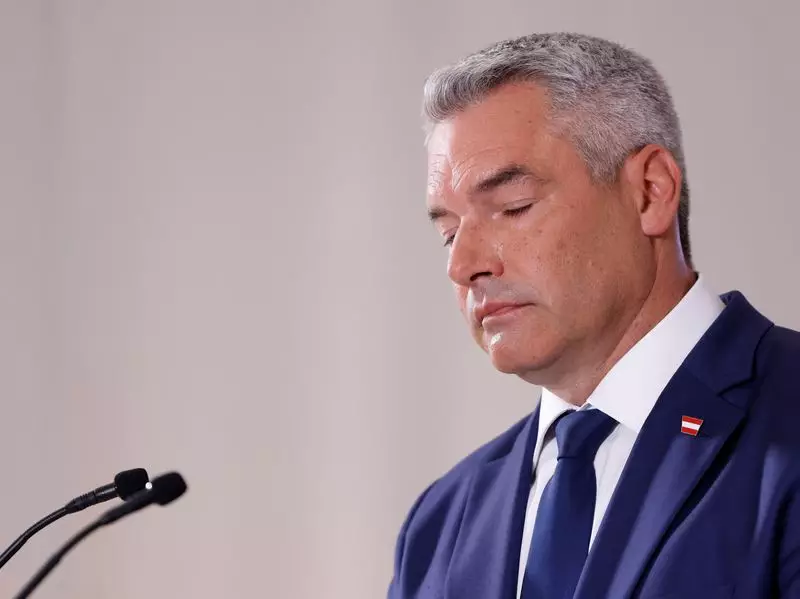In a surprising political maneuver, Karl Nehammer, the Chancellor of Austria, announced his resignation. His departure, following an aborted attempt to form a coalition government devoid of the far-right Freedom Party (FPO), has sent shockwaves through the country’s political arena. The ruling People’s Party (OVP) convened an urgent session to determine Nehammer’s successor, underscoring the urgency of the situation. This unprecedented decision raises questions about the future of Austrian governance and the implications for its political parties, particularly amidst the rising tide of populism embodied by the FPO.
As the OVP tackles an uncertain future, the leadership crisis looms large. A noteworthy candidate, Christian Stocker, the Secretary-General of the OVP, emerged from the meeting as the interim party leader. His interim leadership reflects a desire for stability while the party grapples with its direction. The gathering was marked by tension as officials sought to map out a plan in the wake of failed negotiations for a centrist coalition, intended to curb the influence of the FPO, which recently gained significant traction in the September parliamentary elections. With the FPO securing nearly 29% of the vote, the pressure mounts on the OVP to redefine its parliamentary strategy.
President Alexander Van der Bellen faces a precarious situation, as he must navigate the delicate political landscape following the breakdown of coalition talks. The resignation leaves him with limited options—either call for snap elections or engage in a controversial decision to collaborate with FPO leader Herbert Kickl. Many are concerned that this turn of events could pave the way for a government perceived as more aligned with the far-right ideologies that have previously dominated the FPO’s policy approach.
The possibility of a snap election raises significant concerns regarding the stability of the government and the potential delay in reinstating governance. Markus Wallner, the governor of Vorarlberg, vocalized apprehension about rushing into elections, which would prolong the absence of an effective government. This viewpoint reflects the broader fear that electoral uncertainty might destabilize Austria and render it incapable of addressing the pressing issues that its citizens face.
As the OVP contemplates its next moves, the FPO’s ascent becomes more pronounced. The party’s increasing public support seems to capitalize on growing sentiments around immigration and national identity. In the past, the OVP and FPO had successfully collaborated, yet while they once stood as equals, the OVP now finds itself in the uncomfortable position of considering a partnership where it would be subordinate to the FPO’s leadership.
The FPO’s assertive messaging is noteworthy. The party’s calls for a “Chancellor Kickl” signify its desire to take center stage in Austrian politics, capitalizing on dissatisfaction with the current government. As they continue to push their agenda, the OVP’s leadership will be key in determining whether Austria will slide towards far-right governance or manage to recalibrate its political landscape.
The OVP’s survival hinges on its ability to adapt to the shifting tides of public opinion. As members deliberate on their strategy, they must consider whether forming a coalition with the FPO is not only politically expedient but also beneficial for Austria’s democratic health. Historically, the party has shared overlapping viewpoints with the FPO, especially concerning immigration regulations. However, the ramifications of an alliance could transform the party’s identity forever—stirring unease among those who remember the scandals that marred their former collaboration.
The resignation of Karl Nehammer has catalyzed a significant shift in Austria’s political dynamics. The decisions made in the coming days will undoubtedly influence the nation’s trajectory, exposing deep-seated ideological divides and presenting challenges that require careful navigation. The citizens of Austria will be watching closely to see how their leaders respond to a complex and evolving political crisis.

